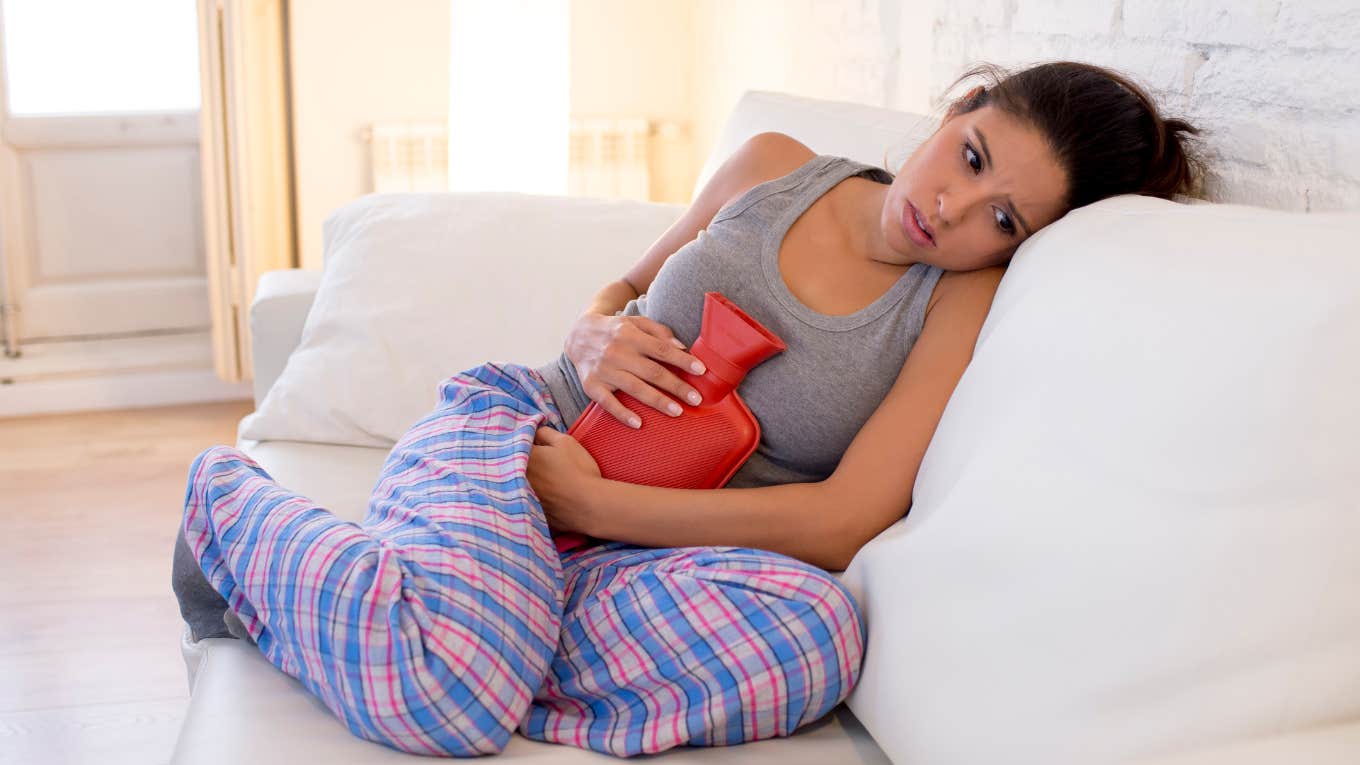The Age You Got Your Period Can Predict How Long You'll Live, According To Research
Good news for late bloomers.
 OcusFocus | Canva
OcusFocus | Canva It probably seems forever ago that you might forget when you got your period, but think way back to that awful day that your monthly friend first arrived. Were you a late bloomer or were you the first girl in your friend group to "become a woman"?
While the age when you got your period was sure to affect your middle or high school experience, you may have never realized that it could have an impact on your health, too.
According to a study by researchers at the University of California, San Diego, women who got their first period later in life are more likely to live longer.
During the study, researchers looked at data from 16,000 post-menopausal women, which was gathered by the Women’s Health Initiative. In doing so, they found that both the age of the first period as well as the age of menopause make a difference in overall health and longevity.
The research indicates that getting your period at age 12 and up, as well as starting menopause after 50, is associated with living a longer life. Whew, so far, so good (for me).
 Andrea Piacquadio / Pexels
Andrea Piacquadio / Pexels
Other interesting takeaways from the study were that women who got their periods later in life were less likely to develop diabetes or form a smoking habit.
One of the leaders of the study, Aladdin Shadyab, said, "Our team found that women who started menstruation at a later age were less likely to have certain health issues, like coronary heart disease, and those who experienced menopause later in life were more likely to be in excellent health overall, which may be a possible explanation for our findings."
He also pointed out that certain factors, "such as smoking, can damage the cardiovascular system and ovaries, which can result in earlier menopause. Women with later menopause and a longer reproductive lifespan may have decreased risk of cardiovascular diseases." It seems that people are always looking for ways to live longer, and while eating right and exercising are the usual go-to options, according to a 2012 study, the secret could lie when you get your period.
"Achieving longevity is an overarching public health goal with so many of us asking 'how do I live longer?' Our study found that women who started menstruation at age 12 or older, experienced menopause, either naturally or surgically, at age 50 or older, and had more than 40 reproductive years had increased odds of living to 90 years old," Shadyab concluded.
Inspired by his grandfather who lived to be over 100 years old, Shadyab hopes to dive even deeper into what offers longevity to women. Well, it seems that if you were one of those girls who felt really behind her friends in the puberty department, you are better off than them in the end.
Shannon Ullman is a writer who focuses on travel and adventure, women's health, pop culture, and relationships. Her work has appeared in the Huffington Post, MSN, and Matador Network.

